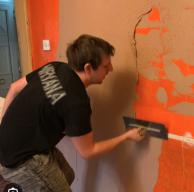WHAT ARE BUILDING PERMITS AND WHY YOU SHOULD CARE?

WHAT ARE BUILDING PERMITS AND WHY YOU SHOULD CARE?
A building permit is an official document issued by a local government agency that allows a property owner to proceed with construction or renovation work on their property.
In South Africa, building permits are required by law for any construction or renovation work, regardless of the size or complexity of the project.
The purpose of a building permit is to ensure that all construction and renovation work is done in compliance with national and local building codes and regulations.
Building codes and regulations are designed to promote safety, health, and sustainability in the built environment.
They set minimum standards for things like structural integrity, fire safety, accessibility, and energy efficiency.
By obtaining a building permit, property owners can be sure that their construction or renovation work meets these standards and is safe and legal.
How Can I Get a Building Permit in South Africa?
In South Africa, building permits are typically issued by local municipalities or district councils.
The application process involves submitting detailed plans and specifications of the proposed construction or renovation work to the relevant authority.
The plans are reviewed to ensure that they comply with building codes and regulations, and any necessary changes or modifications may be required before a permit is issued.
Once a building permit is obtained, construction or renovation work can begin.
However, it is important to note that building permits come with certain conditions and requirements that must be followed.
For example, construction work must be supervised by a qualified building professional, and regular inspections may be required to ensure that the work is being done in compliance with the approved plans.
Failure to comply with these conditions can result in fines, legal action, or even the demolition of the building.
Why is a Building Permit Important?
There are several reasons why obtaining a building permit is important in South Africa.
First and foremost, it ensures that construction or renovation work is done safely and in compliance with building codes and regulations.
This protects the health and safety of the people who will be using the building or living in the area. It also helps to prevent damage to property and the environment.
In addition, obtaining a building permit can help property owners to avoid costly mistakes or delays.
Without a permit, construction or renovation work may have to be halted or even dismantled if it is found to be non-compliant with building codes and regulations.
This can result in additional expenses and delays, which can be avoided by obtaining a building permit from the outset.
Finally, obtaining a building permit can also add value to a property.
Potential buyers or renters are often willing to pay more for properties that have been built or renovated in compliance with building codes and regulations.
By obtaining a building permit, property owners can demonstrate that their property meets these standards and is a safe and legal place to live or work.
Conclusion
A building permit is an important document that is required for any construction or renovation work in South Africa.
It ensures that the work is done safely and in compliance with building codes and regulations, and can help to avoid costly mistakes and delays.
Obtaining a building permit can also add value to a property and demonstrate a commitment to safety and sustainability in the built environment.
Are you planning a home construction or renovation project?Contact Theomandies Construction and Projects today if you are not quiet sure of building related permits.


